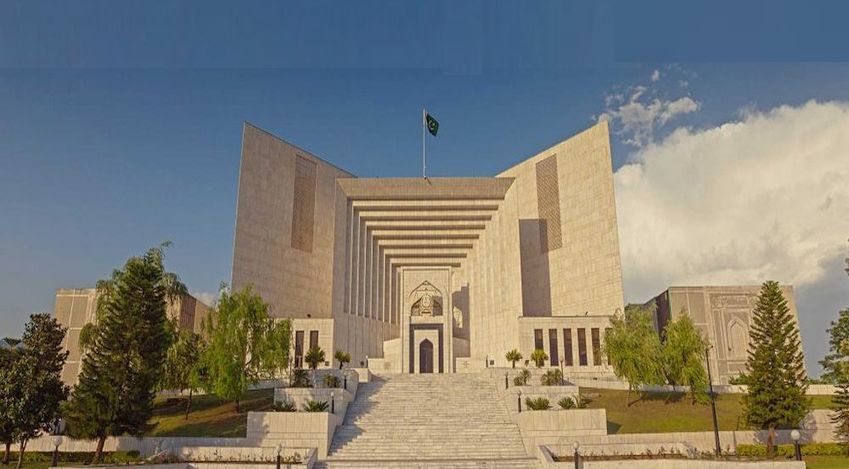Supreme Court Overturns Lahore High Court Decision on Land Demarcation Dispute
Islamabad 20-06-2024: In a significant ruling, the Supreme Court of Pakistan has overturned a decision by the Lahore High Court, Rawalpindi Bench, regarding the maintainability of a petition filed under Article 199 of the Constitution. The Supreme Court's order was issued in [Civil Petition No. 888 of 2024], involving petitioners Muhammad Safeer and others against Muhammad Azam and others.
The bench, comprising Mr. Justice Munib Akhtar and Mr. Justice Athar Minallah, heard the case challenging the Lahore High Court's judgment dated February 1, 2024. The High Court had dismissed the petition on the grounds of maintainability, citing the adequacy and efficacy of the remedy provided under Section 8 of the Punjab Board of Revenue Act 1957. The dispute originated when Muhammad Azam (respondent No.1) filed an application for the demarcation of property, which led to a series of legal challenges. The Gardawar Halqa (respondent No.6) concluded that encroachments had been made by the petitioners, leading to multiple appeals and revisions through various revenue officials, all of which were dismissed.
The Supreme Court examined whether the High Court had correctly assessed the adequacy of the remedy provided under Section 8 of the Punjab Board of Revenue Act 1957. The Court emphasized that the constitutional jurisdiction under Article 199 should only be exercised in exceptional circumstances, such as when the order is palpably without jurisdiction, manifestly malafide, void, or coram non judice.
The Court highlighted the specific grounds for review under Section 8 of the Act, which include the discovery of new evidence, errors apparent on the face of the record, or other sufficient reasons that are relatable to the earlier grounds. The Supreme Court noted that the High Court failed to consider the grounds raised by the petitioners and summarily dismissed the petition based on the adequacy of the statutory remedy. The expansive interpretation given to the expression "for any other sufficient reason" was also criticized. The Supreme Court reiterated that an adequate remedy must be efficacious, reachable, accessible, advantageous, and expeditious. The High Court's omission to examine the grounds raised by the petitioners led to an unsustainable conclusion regarding the maintainability of the petition.
The Supreme Court converted the petition into an appeal and allowed it by setting aside the impugned judgment. The matter has been remanded to the Lahore High Court for reconsideration of the maintainability question in light of the principles outlined by the Supreme Court. This ruling underscores the importance of a thorough judicial review process and the careful consideration of grounds for maintainability in constitutional petitions.
Powered by Froala Editor








